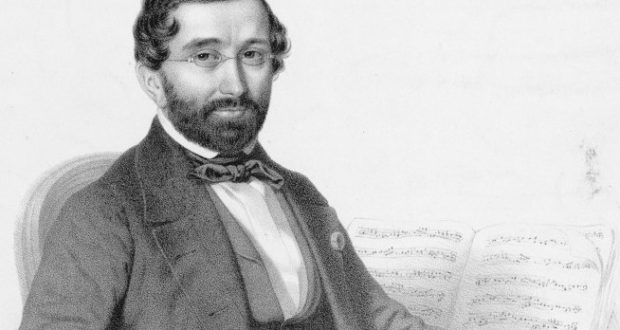Adolphe Adam (1803–1856) was a French composer and music critic best known for his contributions to the world of ballet and opera. Born on July 24, 1803, in Paris, France, Adam displayed an early aptitude for music, studying piano and composition at the Paris Conservatoire under the guidance of esteemed teachers such as François-Adrien Boieldieu.
Adam’s career took a significant turn when he embraced the genre of ballet. In 1829, he achieved success with his ballet “La filleule des fées,” which marked the beginning of his association with the renowned Paris Opéra. His talents in composing for the ballet genre flourished, and he went on to create numerous works, including “Giselle” (1841), one of his most famous and enduring compositions. “Giselle” is considered a masterpiece of Romantic ballet and has maintained its popularity over the years.
In addition to his ballet successes, Adolphe Adam made notable contributions to the world of opera. His opera “Le postillon de Lonjumeau” (1836) gained widespread acclaim and solidified his reputation as a composer with a flair for creating captivating and melodic works. Adam’s operas often featured lively and tuneful music, earning him popularity not only in France but also internationally.
Aside from his achievements as a composer, Adam also made a mark as a music critic. He contributed articles to various publications, showcasing his deep understanding of music and its evolving trends. His critical insights and analyses played a role in shaping the musical discourse of his time.
Despite his success, Adolphe Adam faced financial challenges throughout his life, often struggling to secure a stable income from his compositions. However, his enduring legacy lies in his significant contributions to the world of ballet and opera, where his works continue to be celebrated and performed to this day.
Adolphe Adam passed away on May 3, 1856, in Paris. While his financial struggles were persistent, his musical legacy remains vibrant, with his compositions continuing to captivate audiences and influence generations of musicians and performers.


Comments are closed